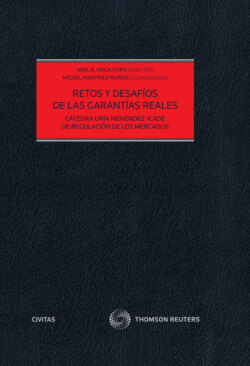Читать книгу Retos y desafíos de las garantías reales - Abel B. Veiga Copo - Страница 13
На сайте Литреса книга снята с продажи.
2. Remedies
ОглавлениеThe remedies of mortgagees and chargees differ from those available to sellers or financiers reserving title under conditional sale and hire purchase transactions. Starting with the remedies of a mortgagee, apart from the case where the mortgagee exercises or is permitted to exercise the rare remedy of foreclosure, which eradicates the mortgagor’s equity of redemption and renders the initial transfer of ownership to the mortgagee unqualified, the range of available remedies still leaves the mortgagee with a duty to account for any surplus. The same goes for chargees (except that foreclosure does not arise at all). The freedom given by the law of security to expand remedies by contract in practice, as stated above, largely eradicates the distinction between mortgages and charges. In principle, a conditional seller or any other financier on title-reservation terms has no duty to account for any surplus if repossessing and retaining or disposing of goods since the goods are the creditor’s unencumbered property. Nevertheless, in line with the hire purchase damages cases referred to above, a seller of goods on reservation of title terms has been said somewhat speculatively and unpersuasively to be under a duty to remit any surplus to the buyer upon repossession of the goods, either as a matter of restitution to avert unjust enrichment or as a matter of implied contract63. No reference is made to a so-called equitable duty of care, present in the case of charges, to secure the best possible price in circumstances of the seller’s own choosing64. It is easy enough to say that handing over a surplus is likely to be a rare event, apart from instances where a substantial part-payment has been made. The significant point is the inroad this move makes into the sanctity of ownership by its deviation from orthodoxy.
